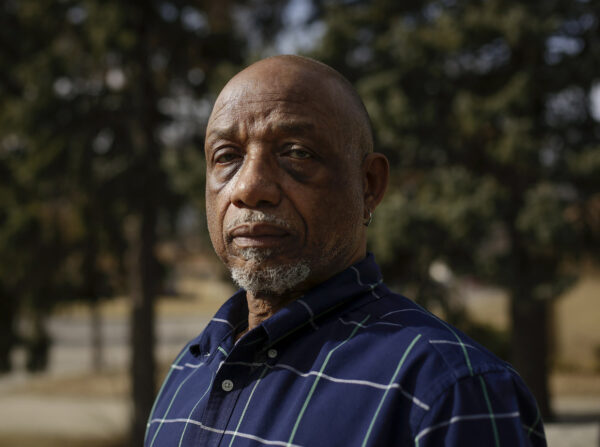Reforming Police
Featured
Arizona
Oct 2023

Reforming Police
Racial Justice
Fund for Empowerment v. Phoenix, City of
Fund for Empowerment is a challenge to the City of Phoenix’s practice of conducting sweeps of encampments without notice, issuing citations to unsheltered people for camping and sleeping on public property when they have no place else to go, and confiscating and destroying their property without notice or process.
Stay informed about our latest work in the courts.
By completing this form, I agree to receive occasional emails per the terms of the ACLU's privacy statement.
All Cases
32 Reforming Police Cases

Hawaii Supreme Court
Apr 2025
Reforming Police
State of Hawaiʻi v. Zuffante
In 1994, the Supreme Court of Hawaiʻi held in State v. Kekona that the due process clause of the Hawai‘i Constitution does not require custodial interrogations to be recorded. More than 30 years later, with advances in technology that have made recording far easier, this case asks whether this decision should be reconsidered. The ACLU’s State Supreme Court Initiative, along with the ACLU of Hawai‘i filed an amicus brief arguing that the Supreme Court of Hawaiʻi should now hold that custodial interrogations must be recorded in order to be admissible in court, either as a matter of due process or as an exercise of the Court’s supervisory authority over lower courts.
Explore case
Hawaii Supreme Court
Apr 2025

Reforming Police
State of Hawaiʻi v. Zuffante
In 1994, the Supreme Court of Hawaiʻi held in State v. Kekona that the due process clause of the Hawai‘i Constitution does not require custodial interrogations to be recorded. More than 30 years later, with advances in technology that have made recording far easier, this case asks whether this decision should be reconsidered. The ACLU’s State Supreme Court Initiative, along with the ACLU of Hawai‘i filed an amicus brief arguing that the Supreme Court of Hawaiʻi should now hold that custodial interrogations must be recorded in order to be admissible in court, either as a matter of due process or as an exercise of the Court’s supervisory authority over lower courts.

Maryland Supreme Court
Dec 2024
Reforming Police
Roland Branch v. State of Maryland
This petition to the Supreme Court of Maryland asked the court to reconsider its adherence to Whren v. U.S., 517 U.S. 806 (1996), which declared that a traffic stop undertaken for pretextual reasons does not violate the Fourth Amendment to the U.S. Constitution so long as the police have probable cause to believe that a traffic violation occurred. The ACLU, alongside the ACLU of Maryland, filed an amicus brief in support of the defendant’s petition, in which the ACLU argued that the court should take up the question of whether pretextual stops violate the Maryland Constitution. In September 2024, the Court denied the petition.
Explore case
Maryland Supreme Court
Dec 2024

Reforming Police
Roland Branch v. State of Maryland
This petition to the Supreme Court of Maryland asked the court to reconsider its adherence to Whren v. U.S., 517 U.S. 806 (1996), which declared that a traffic stop undertaken for pretextual reasons does not violate the Fourth Amendment to the U.S. Constitution so long as the police have probable cause to believe that a traffic violation occurred. The ACLU, alongside the ACLU of Maryland, filed an amicus brief in support of the defendant’s petition, in which the ACLU argued that the court should take up the question of whether pretextual stops violate the Maryland Constitution. In September 2024, the Court denied the petition.

North Carolina Supreme Court
Dec 2024
Reforming Police
State v. Wright
This case in the North Carolina Supreme Court involves the question of whether the police violated the U.S. Constitution when they searched the defendant, Mr. Wright’s, backpack even after he repeatedly said no to the search requests. The ACLU alongside the ACLU of North Carolina filed an amicus brief arguing that the search was unconstitutional because Mr. Wright’s eventual “consent” was the result of police coercion. Our brief urges the court to consider the totality of the circumstances that make one more susceptible to coercion, including race and poverty.
Explore case
North Carolina Supreme Court
Dec 2024

Reforming Police
State v. Wright
This case in the North Carolina Supreme Court involves the question of whether the police violated the U.S. Constitution when they searched the defendant, Mr. Wright’s, backpack even after he repeatedly said no to the search requests. The ACLU alongside the ACLU of North Carolina filed an amicus brief arguing that the search was unconstitutional because Mr. Wright’s eventual “consent” was the result of police coercion. Our brief urges the court to consider the totality of the circumstances that make one more susceptible to coercion, including race and poverty.

Pennsylvania Supreme Court
Nov 2024
Reforming Police
Commonwealth of Pennsylvania v. Shivers
This case in the Pennsylvania Supreme Court asks whether flight from the police in a high-crime area, without more, can justify an investigative stop. The ACLU’s State Supreme Court Initiative, alongside the ACLU of Pennsylvania, filed an amicus brief arguing that it does not. The brief argues that the Pennsylvania Constitution supports broader protections against investigative stops than those recognized under the U.S. Constitution, and that flight in high-crime areas is not inherently more suspicious than flight elsewhere.
Explore case
Pennsylvania Supreme Court
Nov 2024

Reforming Police
Commonwealth of Pennsylvania v. Shivers
This case in the Pennsylvania Supreme Court asks whether flight from the police in a high-crime area, without more, can justify an investigative stop. The ACLU’s State Supreme Court Initiative, alongside the ACLU of Pennsylvania, filed an amicus brief arguing that it does not. The brief argues that the Pennsylvania Constitution supports broader protections against investigative stops than those recognized under the U.S. Constitution, and that flight in high-crime areas is not inherently more suspicious than flight elsewhere.

Wisconsin
Oct 2024
Reforming Police
Racial Justice
Collins et al. v. The City of Milwaukee et al.
On February 21, 2017, the American Civil Liberties Union, the ACLU of Wisconsin, and the law firm of Covington & Burling LLP filed a class-action lawsuit against the City of Milwaukee in the U.S. District Court for the Eastern District of Wisconsin. This lawsuit challenged the Milwaukee Police Department’s unconstitutional stop-and-frisk program that targeted tens of thousands of people without reasonable suspicion of criminal activity, primarily driven by racial profiling.
Explore case
Wisconsin
Oct 2024

Reforming Police
Racial Justice
Collins et al. v. The City of Milwaukee et al.
On February 21, 2017, the American Civil Liberties Union, the ACLU of Wisconsin, and the law firm of Covington & Burling LLP filed a class-action lawsuit against the City of Milwaukee in the U.S. District Court for the Eastern District of Wisconsin. This lawsuit challenged the Milwaukee Police Department’s unconstitutional stop-and-frisk program that targeted tens of thousands of people without reasonable suspicion of criminal activity, primarily driven by racial profiling.
